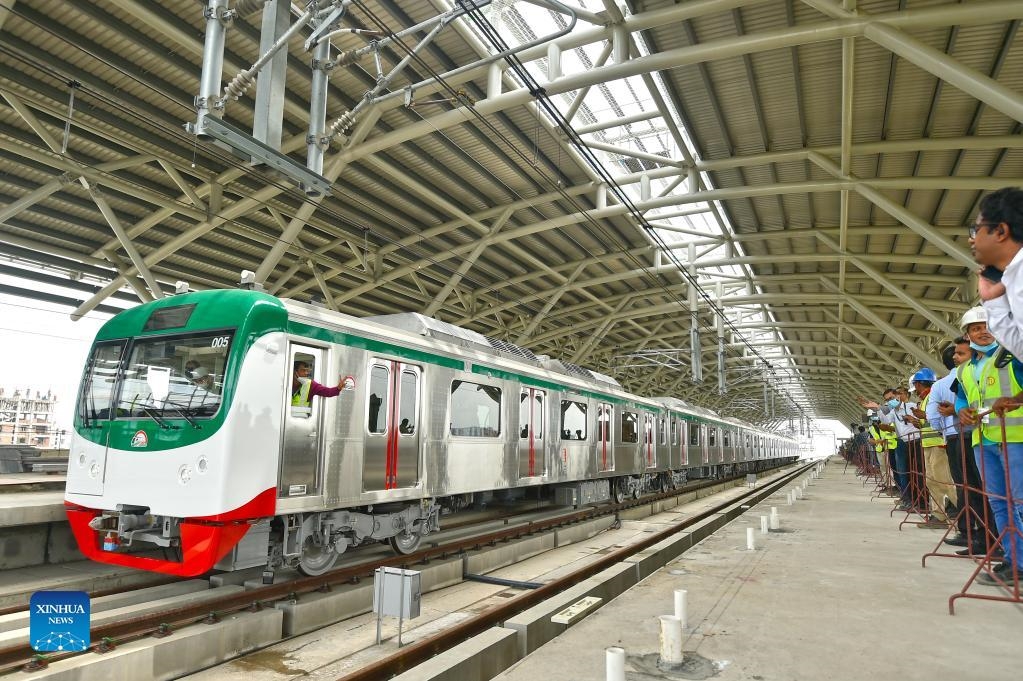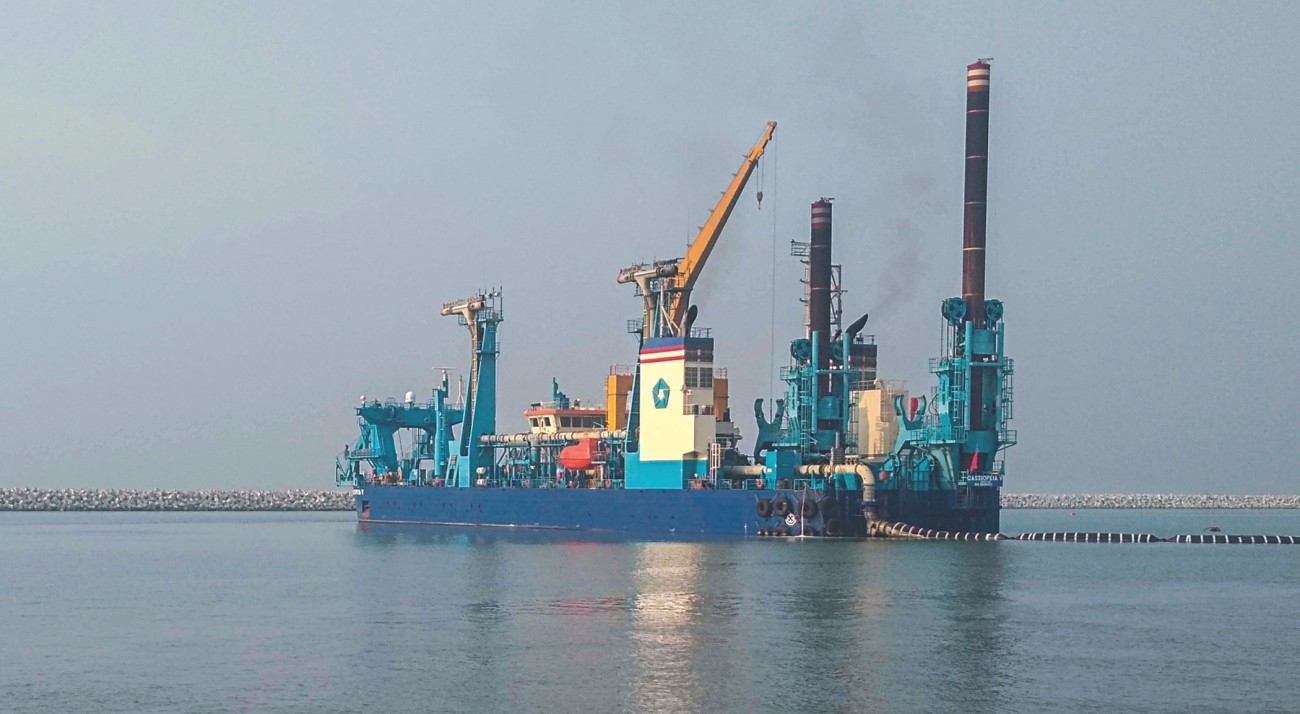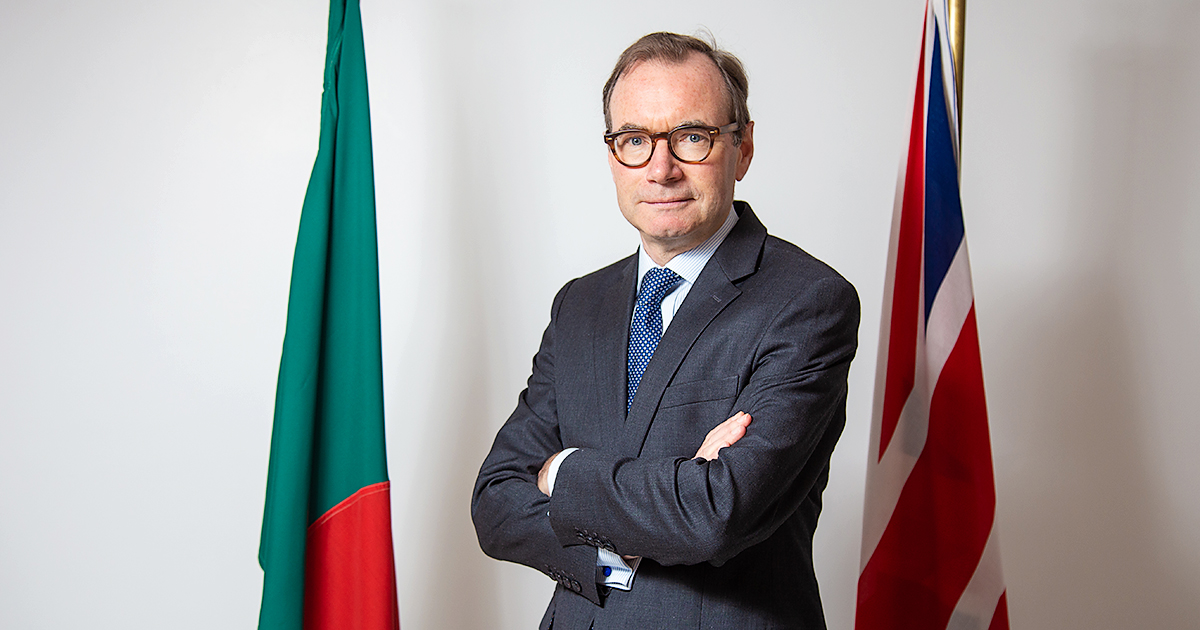An Overlooked Success Story of Bangladesh
British High Commissioner Robert Chatterton Dickson narrates the economic transformation of Bangladesh and reflects on the maturing-flowering-growing Brit-Bangla partnership to mark the Bangladesh Investment Summit in the UK this November
It gives me great pleasure to write this piece to mark the Bangladesh Investment Summit in the United Kingdom as a part of the Golden Jubilee Celebrations of Bangladesh’s independence. The UK played an important role in 1971 and today’s ‘Brit-Bangla Bondhon’ is a modern and maturing partnership.
An exemplar of progress
Bangladesh was one of the world’s poorest regions when Bangabandhu Sheikh Mujibur Rahman declared independence on 26th March 1971. It has overcome the ravages of war and natural disasters to achieve substantial economic and social development. Sustained high economic growth has seen 10-fold growth since independence, while average life expectancy has increased from 46 to 72 years. Extreme poverty has declined by around two-thirds in the last three decades. Before Covid Bangladesh was close to achieving universal school enrolment and is one of a handful of countries where girls outnumber boys in school. A lower-middle-income country since 2015, Bangladesh is on its way to graduating from the UN’s list of Least Developed Countries in 2026.
Bangladesh’s economic transformation has been an outcome of prudent policy choices and globalisation, using comparative advantage in labour-intensive manufacturing. Innovative non-state actors, including Sir Fazle Hasan Abed’s BRAC and Professor Muhammad Yunus’s Grameen Bank, have also played an important role. A prudent macroeconomic policy framework has kept Bangladesh largely immune from economic crises, including the 1997 Asian financial crisis and the 2008 global financial crisis, though at a cost of limited integration with the global economy.
A dynamic private sector
Bangladesh’s economic success is also underpinned by a dynamic, though narrowly focussed, private sector. Supported by a regulatory environment that provides labour-market flexibility, Bangladesh has established itself as the world’s third-largest exporter of ready-made garments. Other sectors are showing promising prospects as global consumer supply chains diversify away from China. Bangladesh’s pharmaceutical industry, for example, is thriving and could expand its global presence with appropriate policy support, including greater security and integrity of patents and intellectual property rights.
The start-up space is buzzing with activity, especially in e-commerce and fintech. Bangladesh has 2,000 digital commerce sites and 50,000 Facebook-based outlets which deliver around 30,000 products every day. Bangladesh’s digital commerce market is estimated at $1.6bn, ranking 46th globally and is predicted to nearly double to $3 billion in 2023.
Economic growth is creating new opportunities for UK Export Finance (UKEF) and CDC, as well as established UK corporates including HSBC, Standard Chartered Bank and Unilever. Total bilateral trade between the UK and Bangladesh is just under £4bn. At present this is very much in Bangladesh’s favour (£750m UK exports to Bangladesh, compared to £3.25b Bangladeshi exports to the UK). The UK is the second-largest cumulative foreign investor in Bangladesh. We would like to see the market more open to high-quality British exports, including services including in finance, education and healthcare.

Bangabandhu Tunnel 
Bangladesh’s first metro rail in the capital Dhaka 
Matarbari deep seaport 
Rooppur Nuclear Power Plant 
Padma Bridge
Time to shift policy gears
Going forward, Bangladesh will need to sustainably increase its growth rate so that its citizens can live more prosperous lives. Millions of Bangladeshis live close to the extreme poverty line and are vulnerable to falling back, which became a reality for many during the pandemic.
There are also signs that the current economic model needs to evolve, including creating more quality jobs for the approximately two million young people who enter the job market every year. The private sector has to navigate one of the world’s toughest business environments. High import tariffs and flexible use of regulations protect well-entrenched businesses and sectors and deter international investors who could benefit the rest of the economy. The unpredictability of revenue models, weak procurement laws and enforcement of contracts impede competitive private investment in the development of infrastructure such as the airports, railways, ports and green energy that Bangladesh needs to achieve its long-term ambition to become a diversified manufacturing hub.
To reach a higher growth track, investment – both public and private – should ideally increase from the current 30 to 35 percent of GDP, adding roughly $15 billion a year. This means mobilising domestic as well as foreign savings and putting them to productive use, including through a reformed and consolidated financial sector and capital markets.
As a country with limited natural resources, achieving Bangladesh’s strategic goals of becoming an upper-middle-income country by 2031 and a high-income country by 2041 will need an outward-looking and competitive private sector. This suggests a new round of policy reforms including deepening and broadening of the financial sector; competitive and predictable tax systems; tariff reforms; and establishing rules-based systems to allow the private sector to access foreign capital and technology.
The City of London, which operates at the heart of the global capital markets, can help bridge Bangladesh’s investment gaps. The successful issue of the first Bangladesh Taka Bond at the London Stock Exchange (LSE) in 2019 showed what can be achieved.
As a long-standing partner, the UK remains firmly committed to working with the government and private sector in supporting Bangladesh to realise its development potential. Our partnership is strongly anchored in the 600,000 strong Bangladeshi diasporas in the UK, making a significant contribution to the prosperity of the two countries.
The UK-Bangladesh Strategic Dialogue in London in September has laid the foundation for a more mature and modern partnership going beyond grant finance and bringing together a broad range of capabilities, including CDC, UK Export Finance, LSE, and GuarantCo to be a part of Bangladesh’s impressive economic journey and delivering shared prosperity.

As High Commissioner I will be coordinating and driving these instruments to increase the prosperity of both our countries as Bangladesh enters its second half-century.



